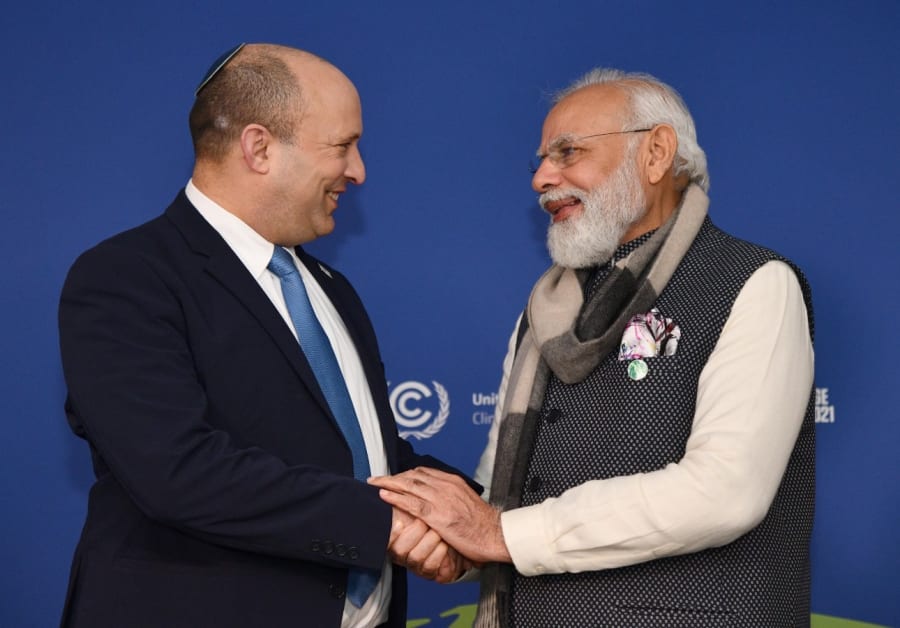Israel moving closer to free trade agreements with India, China and the UAE as Israeli PM Bennett plans visit to India next month
New agreements with global powerhouses expected to lower the high cost of living for millions of Israeli citizens by cutting tariffs on food products and other goods

Israel is moving closer toward signing free trade agreements this year with key global powerhouses such as China, India, the United Arab Emirates and possibly more countries.
If materialized, the new free trade agreements could have a dramatic impact on Israel’s economy and its high cost of living. This would mean significant decreases in tariffs on food products and other goods.
As an advanced OECD economy, the Jewish state already has free trade agreements with the United States, Great Britain and the European Union. In addition, free trade agreements also exist between Jerusalem and several emerging economies such as Brazil, Argentina, Mexico, Turkey and Ukraine.
With a combined population of approximately 2.8 billion people, China and India represent over a third of the world’s total population. These two global giants are also leading exporters of food and many other products that could dramatically change the lives of millions of Israelis with trade agreements in place.
In 2021, Israel imported $10.7 billion in goods from China, which replaced the United States ($8.2 billion) as the Jewish state’s largest source of import. While imports from the U.S. increased slightly compared to 2020, the import volume from China increased by almost 40% compared to 2020. A free trade agreement would boost Chinese-Israeli trade even further.
Israel and the United Arab Emirates, which signed the historic Abraham Accords peace agreement in 2020, initiated negotiations toward forming the Comprehensive Economic Partnership Agreement (CEPA) in November 2021. The free trade agreement is expected to be signed by the end of March, according to the Emirati Ambassador to Israel, Mohamed Al Khaja.
The free trade agreement between the UAE and Israel would "serve as an accelerator for significant economic prosperity," Al Khaja recently tweeted.
With a population of around 10 million, similar in size to Israel’s, the UAE serves as an important commercial hub for global trade in the Middle East and beyond. A free trade agreement with the UAE, would therefore also connect Israel to countries in the Middle East that do not have official diplomatic ties with Jerusalem.
While official ties between the UAE and Israel are barely two years old, bilateral trade has increased substantially. The trade volume between the countries was worth $125 million in 2020, reached $500 million in 2021 and is expected to surpass $1 billion in 2022. Some pundits believe the bilateral trade could reach $3 billion by 2025.
The Abu Dhabi-based Indian retail supermarket Lulu is reportedly negotiating with Israeli government officials about the possibility of opening supermarkets in the Jewish state. Operating 227 stores and 24 malls in 22 countries worldwide, the entry of Lulu and other international food brands could lead to a dramatic increase in competition and lowering of food prices in Israel.
India is an ascending global power, which has established strong relations with Israel since the countries formalized full diplomatic ties in 1992. In January 2022, India’s Commerce and Industry Minister Piyush Goyal confirmed that India and Israel are negotiating a framework for a mutually beneficial free trade agreement. Bilateral trade has been on the rise in recent years and reached approximately $4 billion in 2021. Israel and India also enjoy close military relations – with India importing Israeli military technology worth billions of dollars.
Israeli Prime Minister Naftali Bennett is scheduled to make his first official visit to India in early April, after receiving a warm invitation from the Indian Prime Minister Narendra Modi. The three-day state visit will celebrate three decades of diplomatic relations between India and Israel.
“I am delighted to pay my first official visit to India at the invitation of my friend, Prime Minister Modi, and together we will continue leading the way for our countries’ relations,” stated Bennett.
The Israeli prime minister also stressed the importance of bilateral relations between India and the Jewish state.
“The relations between our two unique cultures – the Indian culture and the Jewish culture – are deep, and they rely on deep appreciation and meaningful collaborations. There are many things we can learn from the Indians, and this is what we strive to do,” said Bennett.
The Israeli leader said Jerusalem seeks to expand its cooperation with India “to other areas, from innovation and technology, security and cyber, to agriculture and climate change.”

The All Israel News Staff is a team of journalists in Israel.














